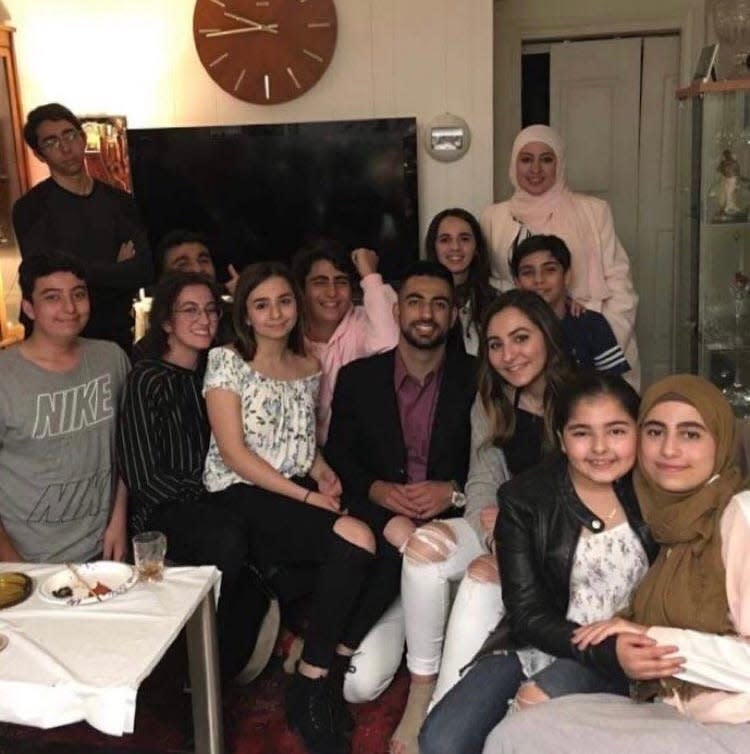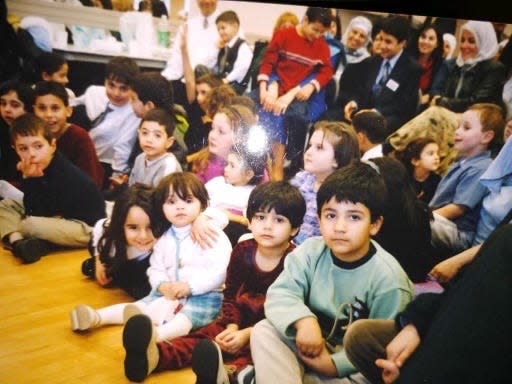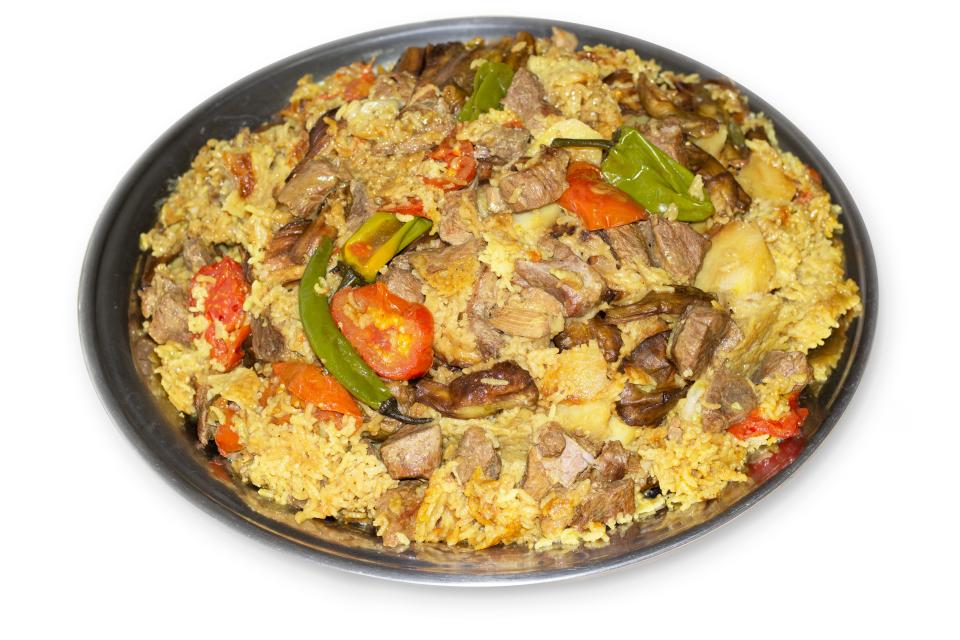Video chats and maqlooba: How one immigrant family created their own Thanksgiving traditions

It can be overwhelming to move to a new country. From the legal process, to learning the language, to figuring out how to succeed professionally and personally. And then there is getting to know new holidays and traditions – like Thanksgiving.
While many families may have grown up with Thanksgiving traditions passed down through generations, some have had to figure it all out from scratch.
That was the case for Amin Shaykho's family.
Shaykho, 25, was born and raised in Seattle. He's a first generation Syrian-American. Over the years, his family not only learned how to celebrate Thanksgiving, but have made the holiday their own, even extending the tradition beyond the U.S. borders.
Embracing a new tradition
As kids, Shaykho said he and his siblings would ask their parents, who immigrated from Syria, about why they don't celebrate some of the same holidays as their peers. At school, they learned about a myriad of new traditions and other cultures.
"I was born here, me and my siblings, first generation. So, the first to go to school. First everything," Shaykho said. "Since I was kind of the first to go to school here, I had to kind of figure it all out on my own."
Having never celebrated Thanksgiving, all Shaykho's parents really knew was that it involved a turkey. But Shaykho and his siblings had noticed that all their peers gathered together for dinner on the holiday. So Shayko's mom did the best she could to learn the traditions. They invited over cousins in the area and cooked a turkey.
They also began inviting neighbors, who brought their own cultural dishes.
Over the years, the celebration grew, and has now become unique and meaningful to Shaykho and his family.
No more food fights: How to talk politics – or not – with relatives on Thanksgiving

Thanksgiving goes international
The Shaykho family has even started a Thanksgiving tradition of their own: using technology to reunite with family in Syria or Saudi Arabia.
"I haven't seen my family, like my full family in person since I would say the year before everything happened in Syria. It's also hard for my mom, because she rarely sees any of her brothers," Shaykho explained.
So now when the family members who are local gather for the holiday, they also set up a video chat for extended family to join in the conversation.
"We all kind of like talk and catch up and we actually put it on the big screen TV," he said. "So, it feels like we're together even though we're not."
'We all miss each other'
Shaykho hasn't seen some of his family members since 2008. After the Syrian Revolution broke out, his family back in Syria migrated across the world. Some moved to neighboring countries, others far away to Europe.
The separation has meant that it's been years since they all gathered together. With different time zones, and overall life, it's hard to keep in touch with everyone.
While some may not always love the awkward family reunions, that opportunity to reunite is one the Shaykho family deeply cherishes, and they all put in the effort to make it happen.
Thanksgiving closures: Are banks and post offices open on Thanksgiving and Black Friday? Here's what to know.
A cultural exchange
It's not just the video chats that extend the Shaykho's Thanksgiving celebration across continents - it's also the food.
Connecting with their neighbors and friends is just as important as reuniting with family abroad. The family has a longstanding tradition of inviting community members to their celebration. In fact, it's an opportunity to learn other cultures, with many other families bringing dishes from their own background.

Beyond the turkey, no Thanksgiving is right without maqlooba. The Middle Eastern dish, which literally translates to "upside down," is a delicious mix of rice and meat, with veggies cooked in a large pot, and then flipped upside down.
"What's funny is we always do challenges of who's going to be the one that's going to actually turn it over and everybody's recording. Because there's been years where one person like goofs up and it falls everywhere. So it's a little running challenge," Shaykho joked.
Every year, Shaykho also looks forward to the sweets. Sure, there's you're typical Thanksgiving staples, but it's the Middle Eastern desserts that really cause a stir. Knafeh, an Arab cheesy dessert is always a big buzz.
"This is a competitive sport for a lot of moms. My mom would be competing with the other moms to see who can make the best one. And then when we're all eating, they'll compete and say 'OK, guys be honest, which deserves to be the best?' So then they try to get fancy with it and innovate on the dish," he said.
Shaykho said it may have been him and his siblings that first brought up celebrating Thanksgiving, but as the traditions grew, he's certain it's his parents – and even the family abroad – that look forward to the day the most.
No turkey needed: How to make a vegetarian Thanksgiving spread, including the main dish
This article originally appeared on USA TODAY: Thanksgiving goes international: How one immigrant family celebrates

